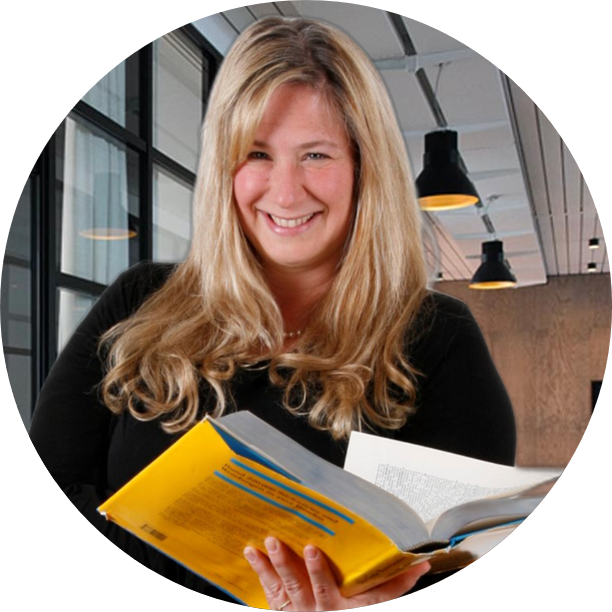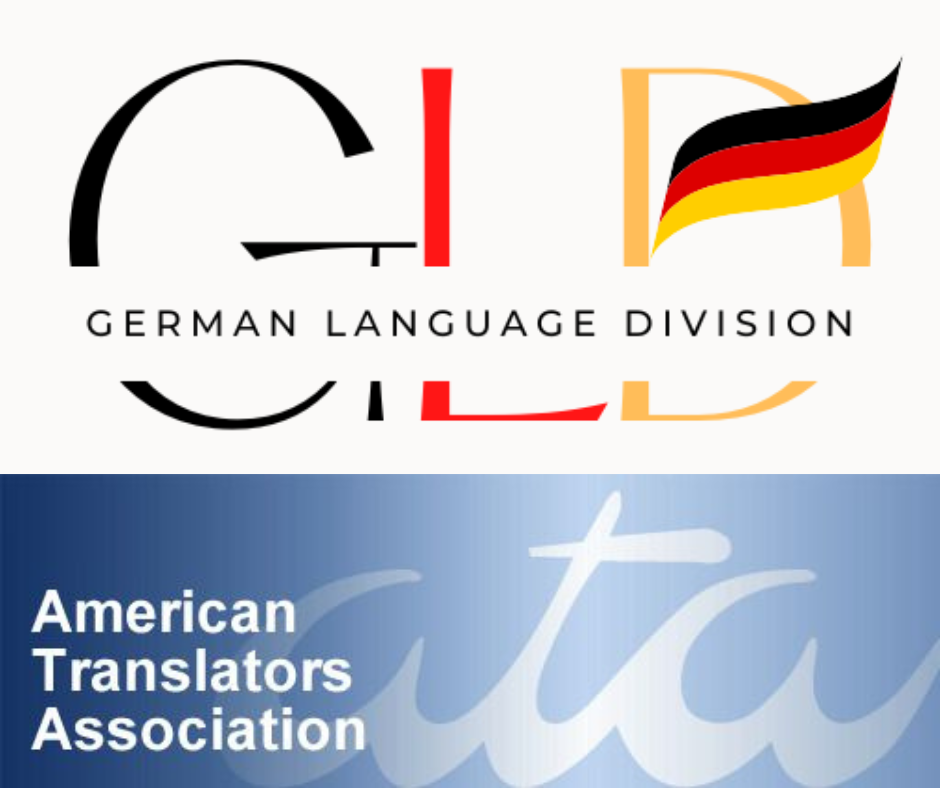The 10th annual Netzwerktreffen der Hochschulübersetzer*innen, a gathering for university translators and freelancers working for universities in German-speaking countries, took place at the University of Mannheim on Tuesday, April 23, 2024. I was lucky enough to attend, along with 60+ other participants, including GLD Administrator Karen Leube and fellow GLD members Kelly Neudorfer and Sarah Swift.
The Netzwerk is a valuable resource that was created by the University of Mannheim’s translation team led by Teresa Schoenkaes, and boasts 200 members from 90 institutes of higher education in Germany who share their knowledge with one another online in a listserv and in person at the annual get-together. Kelly also maintains a list of freelance translators who do academic and university-related translations, which is a helpful resource when it comes to outsourcing and collaborating on translations.
I arrived in Mannheim on Monday afternoon. Since Karen and I were both staying overnight at Tante Alma’s, a unique 1970s-style hotel (complete with crocheted toilet roll covers), this gave us the opportunity to discuss some GLD business over coffee and cake during Tante Alma’s Kaffeekränzchen.
The event kicked off with a networking dinner on Monday evening, giving attendees a chance to break the ice, chat with familiar faces, and meet new colleagues. The venue was Glückstein, a vegan restaurant that featured all kinds of delicious food and cocktails.



The next morning, after picking up our nametags and enjoying a cup of coffee, it was time to settle into the auditorium for a day of interesting and informative sessions. Professor Moritz Fleischmann, Deputy Rector for Sustainability at the University of Mannheim, welcomed us to the 10th annual Netzwerktreffen der Hochschulübersetzer*innen, surprising the Mannheim team organizing the event with an anniversary cake to be enjoyed later by all during the coffee break.


Next came a look back at the past 10 years by Jana Wiegriffe from the University of Hamburg and Teresa Schoenkaes from the University of Mannheim, showing the evolution of the workshop through the years and the numerous and diverse topics covered at the Netzwerktreffen and on the listserv.
The first educational session, held by Kerstin Gackle, was probably familiar to anyone who attended the GLD in Europe’s workshop in Leipzig in February of this year: Leave the Denglish Behind: Translation and Post-Editing Strategies, a valuable and helpful collection of Kerstin’s strategies gathered from various sources and experiences as a translator. Despite having attended it before, I found this session was definitely worth a second look, since Kerstin had added even more useful strategies. At the end of the session, numerous attendees offered their personal strategies and tips as well, which Kerstin was kind enough to collect on a slide to be shared with us later.

After a coffee break, the morning continued with a session by GLD member Kelly Neudorfer from the University of Hohenheim entitled NMT und AI in der Hochschulübersetzung. During her presentation, Kelly covered the differences between AI and NMT and their processes, workflows, the various uses, and what we might expect from these tools in our work as university translators in the future. One important takeaway (among many): In the hands of professionals, these tools are time-saving, but laypeople (non-language-specialists) need training to be able to use them correctly, and it is up to us to teach them.

The group took its annual group picture in the lovely May weather outside in the courtyard of the Schloß, before enjoying an incredible catered lunch with plenty of opportunities to network.


The afternoon began with Impulse aus der Praxis – DeepL in Typo3, a two-part session by University of Mannheim staffers. In the first part, Janna Ried shared her experiences testing the DeepL plugin for the TYPO3 web content management system from the point of view of a user who is not a translator. On a personal note, since I work in TYPO3 at one of the universities I translate for, I was particularly eager to hear about Janna’s experiences.

In the second half, Analisa Schulte talked about the importance of staying in the loop when university staffers who are not translators use DeepL, an unavoidable situation nowadays, and how to accompany this process while maintaining our position as language experts and ensuring proper use of the tool. One important example of this is that while we translators know that DeepL only thinks in sentences, most other users do not. Not everyone has an affinity for languages, nor do they view DeepL’s output as critically as we translators do. It is essential that we offer these users our assistance, educate them, and share our knowledge of the tool’s limits and pitfalls by, for example, holding introductory courses.

Re-caffeinated after a coffee break, we returned to the auditorium for a fishbowl discussion on Wohin geht unsere Reise als Hochschulübersetzer*innen?
A panel comprising Maike Schröder (Karlsruhe Institute of Technology), Katharine Schmidt (freelancer), Jutta Künzner (University of Konstanz), Staci von Boeckmann (Technical University of Munich), Laura Cunniff (Europa-Universität Flensburg), and Sandra Lustig (Leibniz University Hannover) occupied the “fishbowl” chairs, with an empty chair at the end of the row that attendees could occupy whenever they wanted to ask a question or join the discussion. The panelists introduced themselves and posed their own question about the future of our profession in the world of higher education to kick off the discussion.

The fishbowl was highly informative and interesting. It ran over by a few minutes, so I unfortunately had to sneak out to catch my train (which inevitably was late).
A huge thanks to the Teresa Schoenkaes and the University of Mannheim’s translation team for organizing the Netzwerktreffen. It was an incredible day of learning and networking, and I am already looking forward to next year!

Robin Limmeroth is a freelance German>English translator, transcreator, and proofreader with 25 years of translation experience in various sectors. After graduating from Millersville University in 1990, she worked for Infratest Burke Marketingforschung and Mainz University of Applied Sciences, among others. Based in Mainz, Germany, she provides language services to a number of market and marketing research companies, advertising agencies, universities, publishers, and direct clients.
Robin is the Assistant Administrator of the GLD and part of the GLD in Europe team. She also served as Web Manager from 2020-2023.

